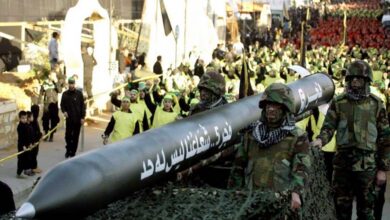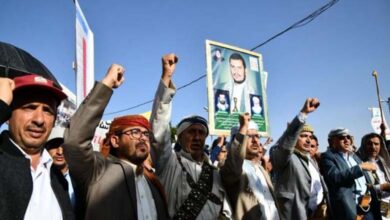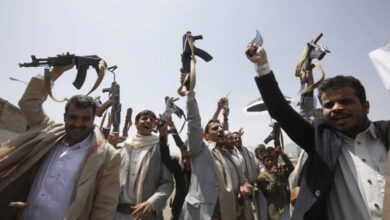Sunni Movement to Isolate Al-Halbousi from Parliament Presidency Supported by the Framework

The Sunni arena in Iraq is witnessing a conflict between two wings, one supporting the survival of Mohamed Al-Halbousi as the speaker of the parliament, and another led by the Azzam Coalition demanding his dismissal from the position. Meanwhile, leaders within the coordination framework supporting Prime Minister Mohammed Shia’ Al Sudani are playing a role in fueling these disagreements with the aim of weakening the Sunni component and appointing a pro-Sunni political figure.
A source told the Iraqi Kurdish website Shafaq News that the Azzam Coalition is leading the campaign against Al-Halbousi with the support of prominent Sunni leaders, and that leaders within the Shiite coordinating framework support this trend.
He said that the current movement is seeking to dismiss Al-Halbousi at the beginning of the new legislative year, in order to name a new Sunni personality to replace him.
These data also point to the extent of differences between Azzam and the Tadhamun alliance, which is led by Al-Halbousi, despite their close alliance with the Sayyed Alliance to unify the Sunni front during the last legislative elections, which threatens to weaken the Sunni component.
Other Sunni powers and figures, such as Jamal al-Karbouli, head of the Solution Party, and prominent politician Haidar Al Mulla, have hinted at the possibility of dismissing Al-Halbousi after criticizing him.
Observers believe that the coordination framework seeks to weaken the Sunni front and to forge alliances with a number of its components with the aim of appointing a speaker of parliament, which is subject to its agendas, in a way that ensures that it will dominate the executive and legislative powers.
The coordination framework knows how to leverage differences within opposing forces, having previously sought to bring together the Sovereignty Alliance and Kurdish parties to engage in a political project called the State Administration Coalition to contain the Sadrists.
The Sunni powers within a sovereign coalition led by Khamis Al-Khanjar sought rapprochement with the Sadrist movement during the crisis with the coordination framework before Al-Khanjar decided to lean further toward the framework to benefit from the policy of quotas after the Sadrist leader Muqtada Al-Sadr expressed his rejection of it and his call for the formation of a national government neither eastern nor western.
Observers believe that Al-Halbousi played a role in preventing any rapprochement between the Framework and the Sunni powers, relying on his alliance with Al-Sadr. This led the leaders in the framework to look at the Speaker with a lot of reservations and suspicion, and seek to settle political sensitivities with him.
Al-Halbousi had repeatedly criticized, during the period of former Prime Minister Mustafa Al-Kadhimi, the loose weapons of pro-Iranian militias, as well as foreign interventions in Iraq, including Iranian interventions, which made him a very unwelcome figure by the Iranian government and its political allies in Iraq.
Last September, he announced his resignation amid escalating political differences. However, the parliament rejected his resignation, with 222 MPs renewing their confidence in him. However, it seems that the situation has changed with the criticism that Al-Halbousi has come under from the Sunni leadership that supported him.
There have been political traditions in Iraq since 2005 whereby the speaker of parliament is a Sunni Arab, has a first Shia and a Kurdish deputy, and the head of government is a Shia and the president is a Kurd.












